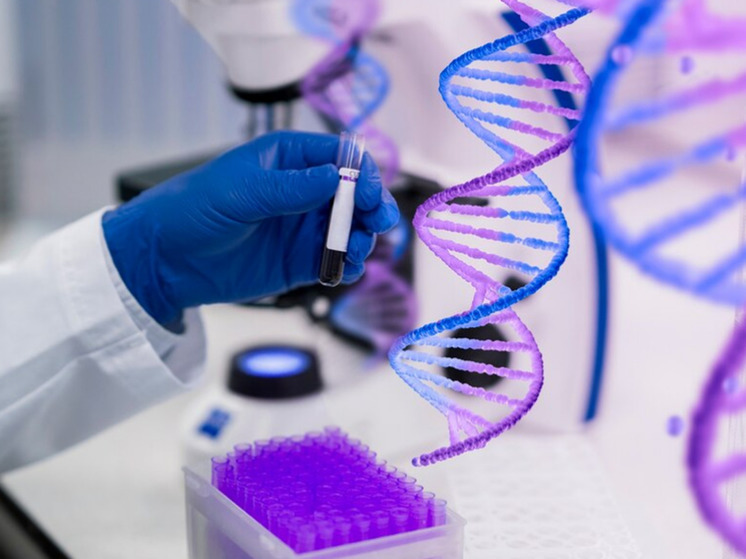«Genes don't determine whether you like sports»
Can DNA testing help improve your fitness? Millions of people around the world spit into bottles in the hope of learning more about their genes. But they are not just looking for information about their origins. Increasingly, people are interested in how their genes may influence their health, nutrition, fitness and risk of injury.

The global direct-to-consumer genetic testing market is projected to skyrocket over the next few years from $1.9 billion in 2023 to $8.8 billion by 2030, according to a market analysis report from Grand View Research. North America leads the way with a market share of 60.5%, although Europe is forecast to be the fastest growing market over the next six years, the analysis shows.
As CNN recounts, in 2013, about 20 companies offered direct-to-consumer genetic tests aimed at determining athletic performance and injury risk—a number that grew to about 70 by 2019, according to a review of one study. Additionally, a 2020 study published in Indian Journal of Orthopedics reports that Uzbekistan and China are using genetic testing in their Olympic talent identification programs, while Australia's National Rugby League players are using DNA tests to tailor their training for sprinting or explosive powerlifting.
Despite all the hype, many researchers say there is too much hype and too little solid science behind these tests. One such skeptic is Dr. Timothy Caulfield, a professor at the Faculty of Law and School of Public Health at the University of Alberta in Edmonton.
“I have been following this area since the late 1990s, and progress has not been significant,” says Caulfield.
Genetic testing caused a stir when scientists discovered the BRCA1 and BRCA2 genes in 1994 and 1995, respectively. Women with mutations in any of these genes have been found to have a lifetime risk of developing breast cancer of 60% to 80%. In addition, a mutation in BRCA1 carried a lifetime risk of ovarian cancer of 40% to 50%, while a mutation in BRCA2 carried a lifetime risk of 10% to 20%.
«The hope was that we would find a lot of genes like these that were very predictive and that you could take steps to improve your health,» Dr. Caulfield said. – But that's not how things really turned out.
Instead, he said, scientists have figured out how our genes work — a complex topic, especially in relation to fitness and sports. For example, Caulfield took a genetic test that showed he was unlikely to excel as a sprinter. However, he was talented at the sport, competing in competitions throughout his childhood and college.
“There is no doubt that genes matter, but the question is how much – Caulfield said. – Even when you look at Olympic level long jumpers who need very explosive movements, not all of them have the sprinter gene. If it really mattered, they should all have it.
Indeed, scientists say there are many additional factors when it comes to athletic talent and success, such as diet, sleep, training, motivation, socioeconomic status and even prenatal experience. Likewise, there are countless variables when it comes to your risk of injury.
Another concern for researchers is the scientific validity of these tests. While the accuracy of actual genetic testing is likely good, the science behind how companies interpret the results can be problematic, according to Dr. Dylan McKay, an assistant professor of nutrition and chronic disease at the University of Manitoba in Winnipeg, Canada.
< p>“Often these tests are based on associations rather than randomized controlled trials aimed at identifying cause and effect, McKay said. – For example, watermelon consumption is associated with drowning — because more people go swimming at the same time of year when they eat watermelon. But this is just an association”.
The recommendations companies make based on your test results are also often vague or standard. Caulfield's results showed that he was at risk for certain cardiovascular diseases and cancer.
“What is my personal advice for staying healthy? Eat right, exercise regularly, don't smoke, drink in moderation, says Caulfield.
Despite these problems, many remain intrigued by DNA fitness tests. One such person is Devin Mayer, co-owner of Balance Gym in Washington, DC. Balance Gym recently partnered with UK company FitnessGenes, which sells genetic tests to help its clients achieve better workout results.
While the tests don't provide precise instructions on how to get in shape, Mayer said he thinks they can be helpful. One of his clients was trying to build muscle by lifting heavier weights but with fewer repetitions. His test results showed that his muscle type would work better with higher volume training, so Mayer advised him to switch to lifting lighter weights with higher reps. Within a month or two, the client noticed the desired muscle gains.
According to Mayer, these tests can also help you identify your strengths and weaknesses so you can address them.
“You may not have the genes to be a good endurance athlete,” he said, “but if you want to run a marathon, we can help you train better so you can do it.”
Mayer said he believes there is great potential in this area as well. «Our DNA doesn't change, but science and information do, and that will continue,» Mayer said.
Time and further scientific advances may shed more light on whether DNA fitness tests are useful. But Dylan McKay still has his doubts.
“I have been working in this field for a long time, and although genetic testing is getting better and better, there are no new discoveries that are groundbreaking,” he.
Caulfield said he hopes parents don't use these tests to force their child into a certain sport or activity. «Genes don't determine whether you'll like a sport or be good at it,» he said. “You should do what you enjoy and don’t let these genetic tests make it any more difficult than it needs to be.”























































Свежие комментарии